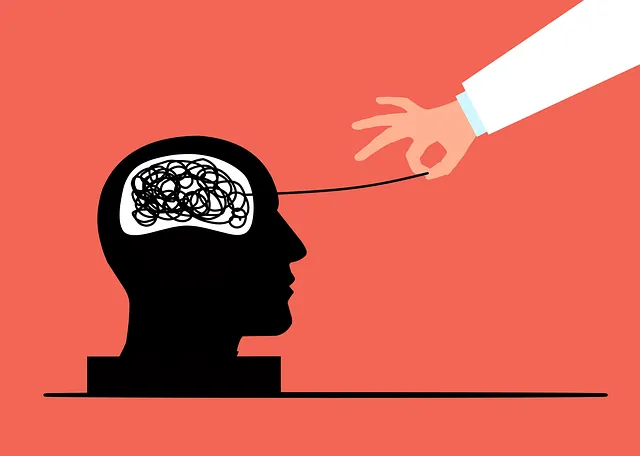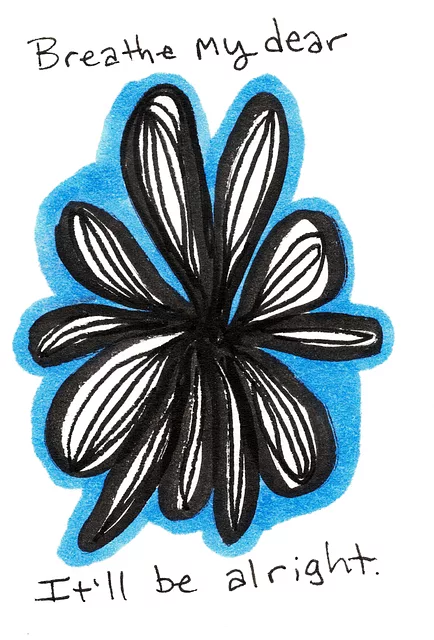The digital age has seen a surge in demand for accessible mental health services, leading to innovations like mental wellness apps. Apps from providers like Kaiser Superior offer engaging platforms for therapy, mood tracking, mindfulness exercises, and social skills training, tailored to individual needs. Integrating these apps into mainstream healthcare is essential as more people embrace digital solutions alongside traditional therapy. With proper regulation and evidence-based design, they can reach a vast audience, making quality mental health services more accessible. By incorporating Kaiser Superior Services, these apps provide top-tier care, but challenges include secure data flow and risk management for professionals. The global mental wellness app market is booming, with a 2021 value of USD 4.8 billion and projected growth of 25% CAGR from 2022-2030, driven by demand for accessible, affordable services. Kaiser Superior's innovative app-based services improve patient outcomes, and future prospects look promising with AI advancements in personalized treatment plans.
In today’s digital age, mental wellness app development is a crucial step towards accessible healthcare. With a growing need for remote support, apps offer a convenient way to connect users with essential mental health services. This article explores the rise of this industry, focusing on Kaiser Superior as a leading provider. We’ll delve into key features that define a comprehensive mental wellness app, analyze market trends, and discuss the benefits and challenges of integrating Kaiser Superior services. Discover how these apps can revolutionize access to mental health care, particularly through innovative solutions like Kaiser Superior offers.
- Understanding Mental Health App Development: A Growing Need
- Key Features for a Comprehensive Mental Wellness App (Kaiser Superior)
- Integrating Kaiser Superior Services: Benefits and Challenges
- Market Analysis and Future Prospects for Mental Health Apps
Understanding Mental Health App Development: A Growing Need

In today’s digital age, the demand for accessible mental health services has never been higher. This growing need is driving innovation in app development, particularly within the realm of mental wellness applications. According to recent studies and a Mental Health Policy Analysis and Advocacy, there’s a significant gap in traditional care models, leading many individuals to seek alternative solutions. Apps like those produced through Kaiser Superior offer an engaging and convenient way to get mental health support. By leveraging technology, these applications provide platforms for therapy sessions, mood tracking, mindfulness exercises, and even social skills training—all tailored to individual user needs.
The integration of mental wellness apps into mainstream healthcare is not just a trend but a necessity. As our understanding of mental health continues to evolve, so does the need for diverse support systems. A Mental Wellness Podcast Series Production highlights this shift, as more people are open to exploring digital solutions alongside traditional therapy. With proper regulation and evidence-based design, these apps have the potential to reach a vast audience, ensuring that quality mental health services become more accessible to all, especially those who may face barriers in accessing in-person care.
Key Features for a Comprehensive Mental Wellness App (Kaiser Superior)

A comprehensive mental wellness app should offer a suite of features designed to support users’ holistic well-being. Firstly, it must facilitate easy access to mental health services through Kaiser Superior, enabling users to connect with professionals for therapy and counselling sessions at their convenience. This can include video conferencing, chat functions, and secure message boards.
Additionally, the app should incorporate evidence-based practices such as Social Skills Training to enhance users’ interpersonal interactions and overall social well-being. Stress Reduction Methods like mindfulness exercises, guided meditations, and progressive muscle relaxation techniques can help users manage daily stressors effectively. Moreover, addressing the Mental Illness Stigma Reduction Efforts through educational resources and supportive communities fosters a non-judgmental environment, encouraging open dialogue about mental health challenges.
Integrating Kaiser Superior Services: Benefits and Challenges

Integrating Kaiser Superior Services into mental wellness apps offers both significant benefits and unique challenges. One of the primary advantages is providing users with easy access to top-tier mental health services through a familiar, trusted brand like Kaiser. This can encourage more people to seek help, as they may be more comfortable engaging with an app that’s affiliated with a well-known healthcare provider.
Additionally, Kaiser’s expertise in managing and treating a wide range of mental health conditions allows for the development of evidence-based features within the app, such as tools for stress management, mindfulness exercises, or even early intervention strategies. Incorporating these services can enhance user experience by offering personalized support tailored to their needs. However, ensuring seamless data flow between the app and Kaiser’s systems for efficient care coordination poses a challenge. Effective risk management planning, including secure data storage and privacy protocols, is crucial to address concerns related to sensitive mental health information, while also preventing burnout among mental health professionals who may be involved in app-based consultations.
Market Analysis and Future Prospects for Mental Health Apps

The market for mental wellness apps is experiencing significant growth, driven by increasing awareness about mental health and a growing acceptance of digital solutions. According to recent studies, the global mental health app market size was valued at USD 4.8 billion in 2021 and is projected to grow at a CAGR of 25% from 2022 to 2030. This growth is largely attributed to the demand for accessible and affordable mental health services, especially during the COVID-19 pandemic, which highlighted the need for remote care solutions. One notable example is how Kaiser Superior has leveraged technology to provide superior mental health services through innovative apps, ensuring continuity of care and improved patient outcomes.
Looking ahead, the future prospects for mental health apps appear promising, with advancements in artificial intelligence (AI) and machine learning expected to enhance personalized treatment plans and crisis intervention guidance. Apps that promote positive thinking, mindfulness, and self-care are likely to gain traction, catering to a diverse range of users from students to working professionals to individuals dealing with specific mental health conditions. As the market matures, there will be an increased focus on data privacy, ethical considerations, and integrating app functionalities with traditional healthcare systems for comprehensive mental wellness solutions.
Mental wellness apps have emerged as a vital tool in addressing the growing need for accessible mental health services. By incorporating essential features and integrating with established systems like Kaiser Superior, these applications offer individuals an accessible and convenient way to manage their mental well-being. The benefits are clear, but challenges remain, particularly in ensuring data privacy and user engagement. As the market analysis indicates, there is a promising future for mental health apps, with potential to revolutionize how we access and support mental wellness services through innovative technology, such as Kaiser Superior’s offerings.






